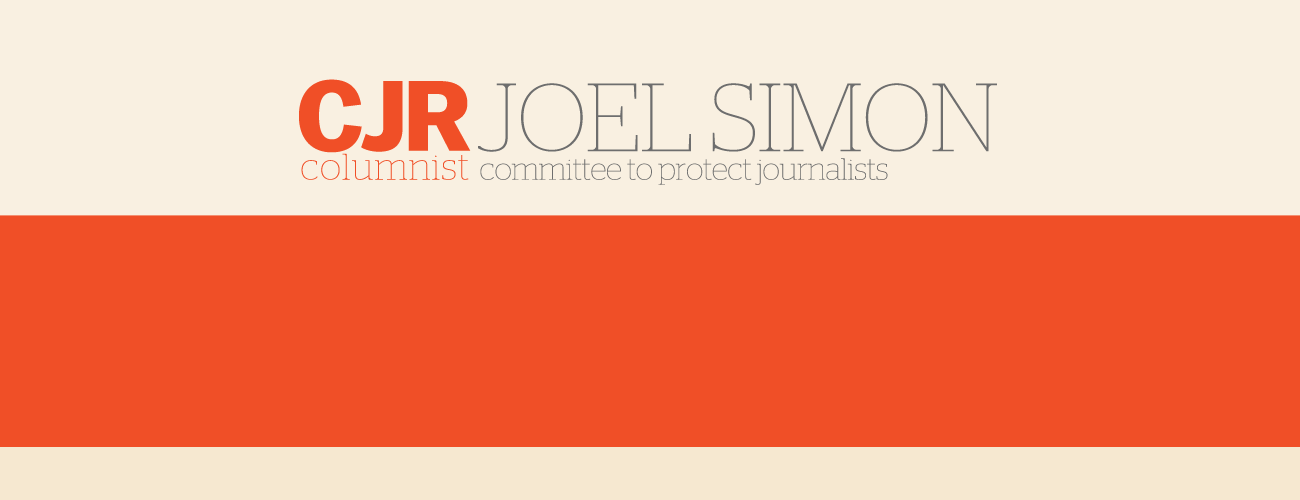Sign up for the daily CJR newsletter.
President Trump’s anti-media rhetoric is dangerous. It undermines public trust and confidence in journalism; it provides cover to dictators and autocrats around the world; and it inspires assorted cranks who have taken action including threatening to shoot up The Boston Globe newsroom and sending mail bombs to CNN.
But while Trump’s rhetorical attacks are worrisome and harmful they do not themselves violate the freedom of the press. (Trump does, after all, have the right to express any loathsome idea he wishes.) What does violate that freedom is the repeated prosecution of journalists’ sources under the Espionage Act.
On Thursday, the US Justice Department indicted Daniel Hale for allegedly leaking information about a classified drone targeting program to The Intercept. Hale is the fourth source to be indicated under the Espionage Act since Trump took office, and three other sources have faced criminal prosecution under other statutes. The Justice Department says that many other such cases are pending.
Though journalists obsess about Trump’s rhetoric, the media itself has under-covered this growing threat. Perhaps this is because it does not fit neatly in a narrative. After all, the trend began under the Obama administration, whose Justice Department prosecuted at least eight Espionage Act cases, more than all previous administrations combined. While such prosecutions slowed in Obama’s second term, after media organizations expressed widespread concern, they have picked up again under Trump.
People who leak information to the media have a variety of motivations, usually complex. Some are whistleblowers, and others are motivated by politics or anger. Everyone involved recognizes there can be serious legal and professional consequences if sources are exposed; they can be fired, sued, or prosecuted for such crimes as mishandling confidential information.
But leaking to the media is not a form of espionage, and to prosecute it as such not only conflates leaking with spying, it chills media-source interactions and sets a dangerous precedent in the United States and around the world. And because the government uses the Espionage Act, there is no provision for a public interest defense, according to Jameel Jaffer of the Knight First Amendment Center at Columbia.
The most potentially explosive application of the overly broad legal theory could involve Julian Assange, who was arrested at the Ecuadorean embassy early last month for skipping bail to avoid answering questions about allegations of sexual assault in Sweden. Not long after his arrest, U.S. authorities filed papers seeking Assange’s extradition to the United States.
While there is a legitimate debate over whether or not Assange should be classified as a journalist, no one denies he is a source. The scope of the extradition request is limited to an alleged violation of the Computer Fraud and Abuse Act which carries a sentence of up to five years. But Assange is almost certainly being prosecuted for what he published. There is also a scenario in which Assange could still face eventual prosecution under the Espionage Act.
This was a step too far for the Obama administration, which considered such a prosecution but backed away because of the implications for press freedom. After all, if publishing classified information is a crime, then U.S. news organizations would face serious legal jeopardy. Even more ominously, because Assange is not a U.S. citizen and was operating outside the United States, his prosecution would set a precedent that could make it easier for a another country — say Russia — to prosecute a U.S. journalist for publishing its classified information.
Nearly everyone who has been drawn into Assange’s orbit has been burned. Journalists and those who would defend press freedom need to approach his case with wariness and wait until more facts emerge. Yet there is a very real danger that stems from his prosecution and the other aggressive prosecutions of leakers. It’s a danger that goes far beyond Trump’s hateful rhetoric to the essential legal protections that journalists need to do their job.
Everyone who cares about press freedom should be paying close attention.
Has America ever needed a media defender more than now? Help us by joining CJR today.







